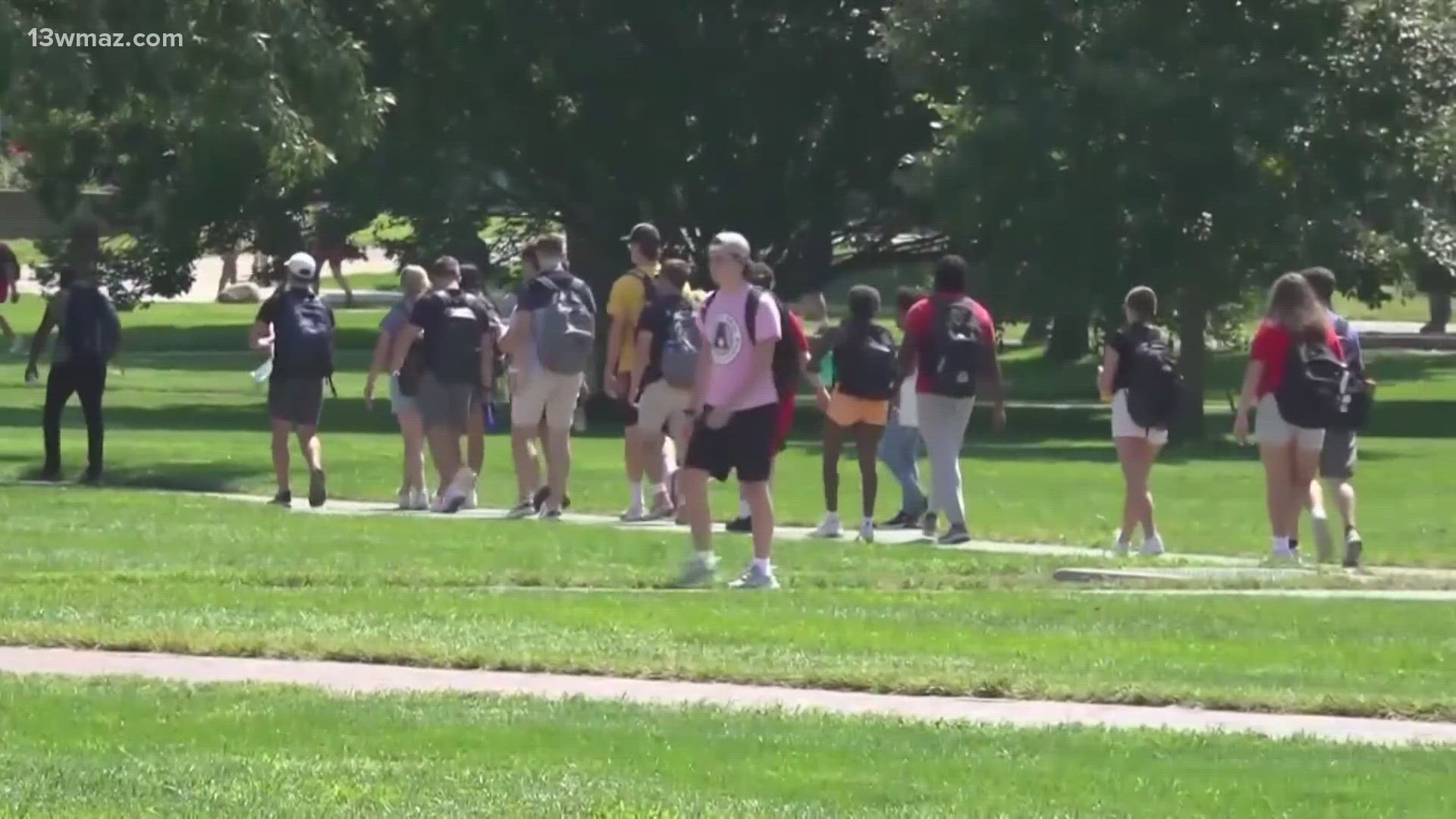MACON, Ga. — The federal government recently started accepting applications for the "Savings on a Valuable Education" — or "SAVE" plan — to make student loan payments more affordable.
The federal government says the SAVE plan provides the lowest monthly payments of any repayment plan available to nearly all student loaners and is based on your income and family size.
They say that it provides the lowest monthly payments of any repayment plan available to nearly all student borrowers.
It's also set to eliminate 100% of the remaining interest for both subsidized and unsubsidized loans.
"The whole point of bettering the future generations is to make things easier for them, so hopefully with any student loan forgiveness, we can address the predatory interest rates that we have. School shouldn't be this expensive," Anna Rios, a Mercer graduate student, said.
This means students will pay less interest each month without increasing in debt.
"I think the program could relieve a lot of stress from students because they shouldn't be worried about this on top of grades," Rios said. "It could be very detrimental to someone's health."
To apply, you can visit StudentAid.gov. Student loan repayments are set to pick back up on Oct. 1.
Back in June, the U.S. Supreme Court struck down the previous effort by the Biden administration to forgive $430 billion in students' federal loans.
In the Supreme Court's decision in Biden v Nebraska, they said the Biden administration overstepped its authority under the Higher Education Relief Opportunities for Students Act of 2003 (HEROES Act).
While the HEROES Act gave the Secretary of Education the authority to "waive or modify" financial assistance programs in times of war or national emergency, Chief Justice John Roberts wrote the HEROES Act did "not allow the Secretary to rewrite that statute to the extent of canceling $430 billion of student loan principal."
But under the new SAVE program, the Biden administration is leaning on a law that passed during the Clinton administration. In the 1990s, Congress gave the Education Secretary the authorization to create an income-based repayment plan, according to NPR.
In the years since, various other presidential administrations have created new income-based repayment plans under that same law. They take into account how much a person is making when determining monthly payments.
Now, the Biden administration is doing the same with the SAVE plan.
For people who enroll in the SAVE plan, they could see their monthly payment set at $0 if they meet certain financial thresholds.
For example, a single borrower making $15 an hour — or less than $32,000 a year — would be eligible for a $0 payment, according to CNN. A family of four making less than $67,500 would also have a $0 payment.
But even though the principal of the loan would not be decreasing, the SAVE plan also keeps people from seeing their loan's balance increasing due to interest.
If a borrower makes their monthly payment in full and the amount of interest on the loan exceeds a borrower's monthly payment, any additional interest above that payment would not be tacked on, CNN reports.
This keeps a person's loan balance from increasing — even if the monthly payment is lower than the amount of interest due — as long as the borrower makes their monthly payment, which could be nothing for borrowers who meet those financial standards.
Under previous income-based repayment plans, a borrower's student loans could be forgiven after 20 years of payment, according to the U.S. Government Accountability Office, a non-partisan government agency.
But under the SAVE plan, any balance left over could be forgiven in only 10 years if you have borrowed less than $12,000 from the government, according to NPR.
Then, one year is added for every additional $1,000 taken out in student loans, according to the Washington Post.
In a press release, the Biden Administration says that 4 million Americans have enrolled in the SAVE plan already, and in Georgia, 178,600 people have enrolled.
The Biden Administration's plan has already faced some legal challenges. A lawsuit was filed by two conservative think tanks attempting to block the plan, but those were dismissed by a judge. However, future legal challenges could be possible.

